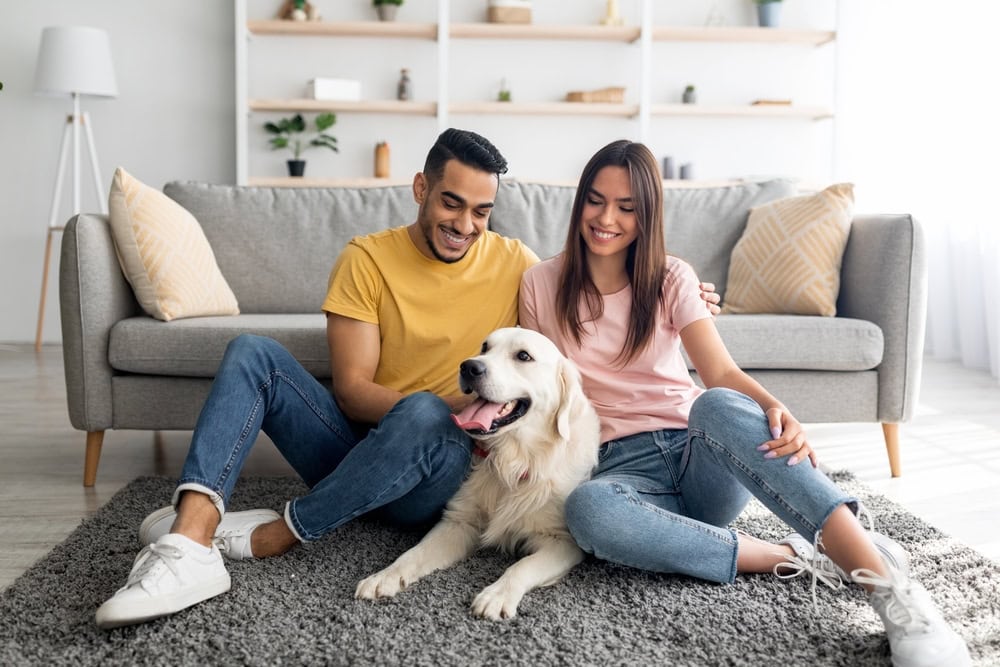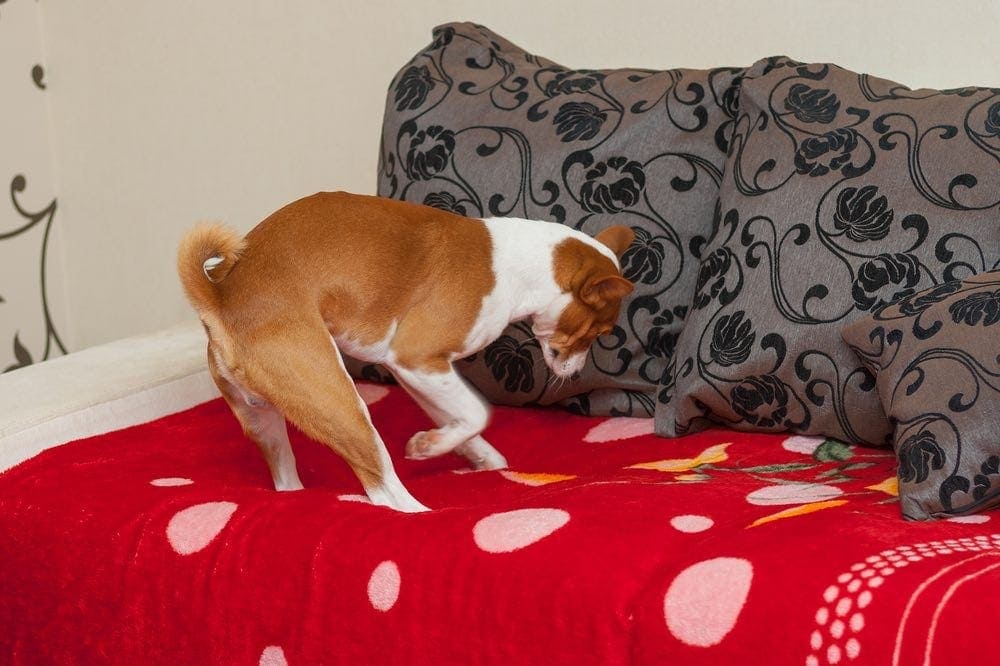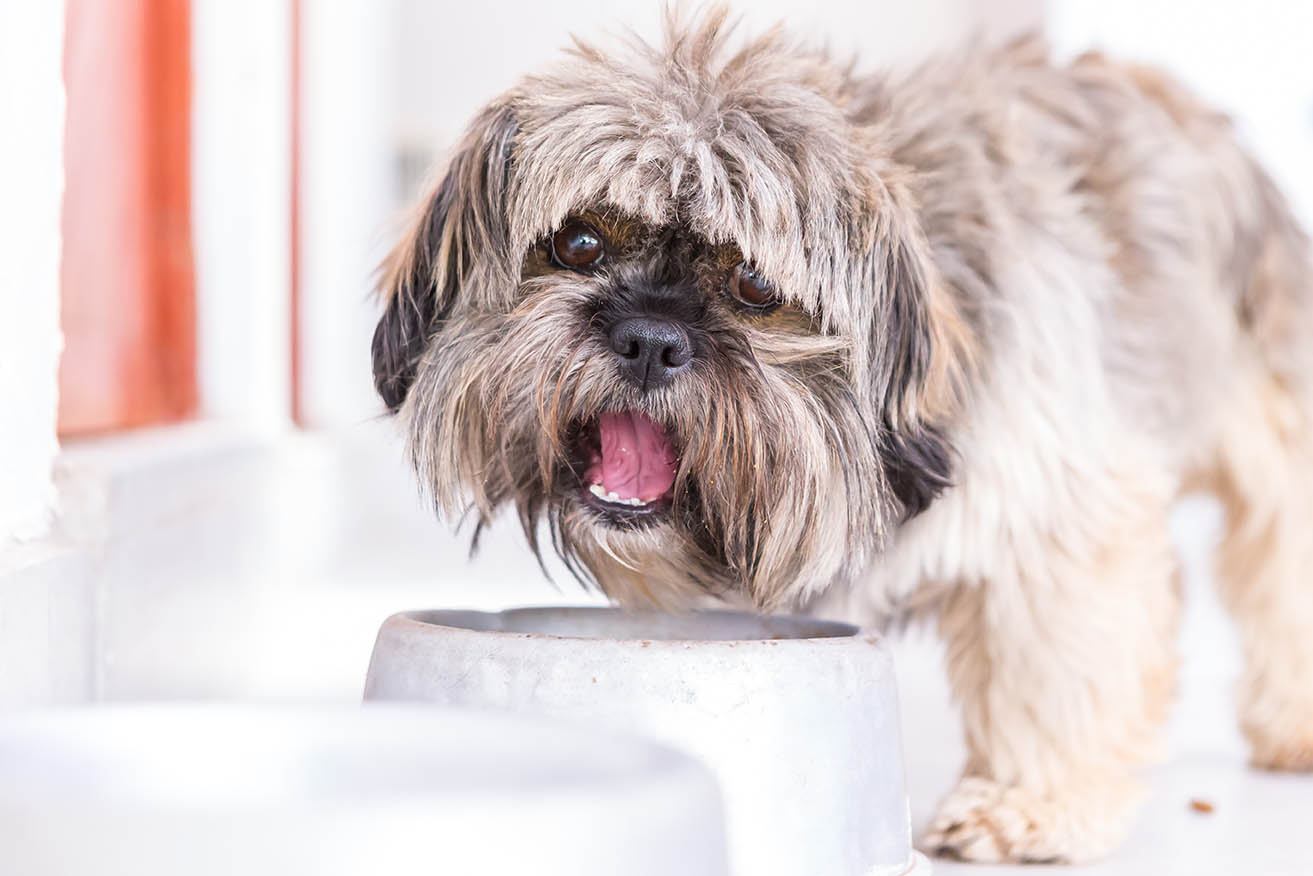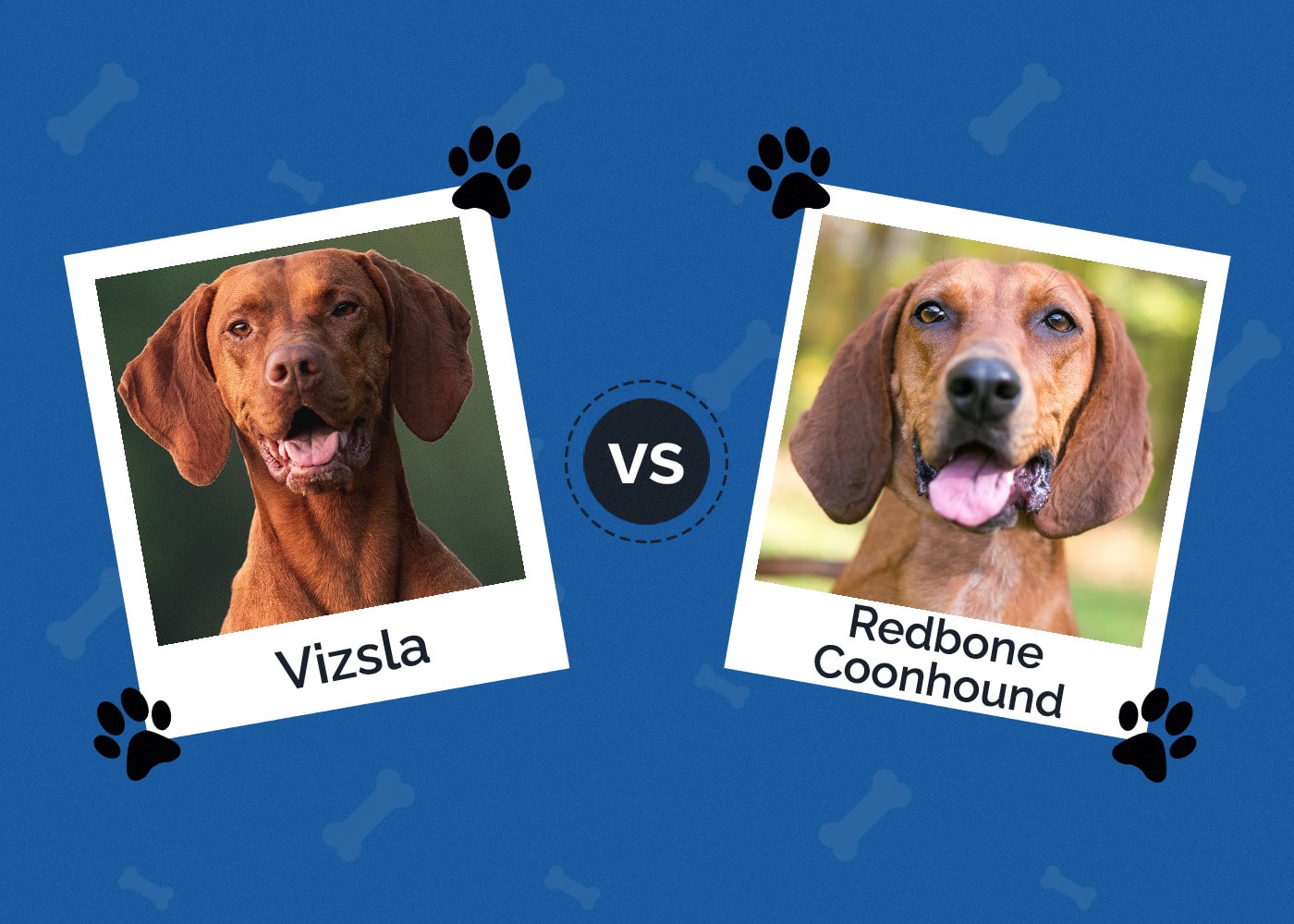Can Dogs Get Jealous of Your Partner? 5 Vet-Reviewed Signs
By Grant Piper
Updated on

This article has been reviewed for factual accuracy by a qualified veterinarian. The views and opinions expressed herein are those of the author and do not necessarily represent the views or opinions of the veterinarian. In addition, this article is a general behavioral guide only and does not replace a consultation with a veterinary professional and advice tailored specifically to your pet and situation.
Click to Skip Ahead
Introducing your dog to a partner can be an anxious affair. You never know how your partner is going to react to your dog, and you don’t know how your dog is going to react to your partner. When you love both, it can be challenging. This is a situation that plays out every day all over the world. In many cases, people report that they feel that their dog is acting jealous and possessive. But is that true? Can dogs feel jealousy? According to new data, dogs can indeed be jealous of your partner. Having a jealous dog can be disruptive and concerning. The good news is there are ways to mitigate this behavior.
This is what science says and things you can do to try and make your dog feel less jealous and more at ease with your partner.
Dogs Can Get Jealous
There has been a debate going on for some time about whether dogs can feel jealousy. Jealousy is a very powerful human emotion, and people are prone to projecting their own complex feelings and emotions onto their canine companions. But it turns out that dogs can feel jealous, and they likely do get jealous of new partners. If your dog starts acting out, being clingy or possessive when your partner is around, or when you show personal displays of affection, you could be dealing with a jealous pup.

How Do We Know That Dogs Can Feel Jealous?
Thanks to a 2021 study,1 we can now definitively say that dogs are capable of feeling jealousy when their owner paid attention to a fake dog and it is likely this jealousy could also extend to humans. Previously, people suspected that dogs were acting jealous, but no one could say for sure if it was truly jealousy. Jealousy and anxiety both manifest themselves in similar ways in dogs. Jealousy is a complex emotion that requires multiple layers to experience, and some doubted that animals were capable of feeling such a complex emotion. However, this study tested 18 dogs by having people do a variety of tasks, including interacting with fake dogs, to gauge the dogs’ reactions. The results were surprising.
In the control group, people were asked to interact with a fuzzy cylinder instead of another dog, and the reaction from the dogs was much different. Signs of jealousy almost evaporated completely, which says that dogs do feel jealousy when their person interacts with another dog (or person) instead of them.
Amalia Bastos from the University of Auckland’s School of Psychology says:
“Our research supports what many dog owners firmly believe — dogs exhibit jealous behaviour when their human companion interacts with a potential rival.”
This study went a long way toward proving that dogs can indeed feel jealousy and exhibit jealous behaviors, which can be applied to dogs. If they can feel jealousy towards a fake dog, why not humans?
 The 5 Signs That Your Dog Is Jealous
The 5 Signs That Your Dog Is Jealous
1. Destructive Behavior
If your dog starts tearing stuff up when your partner is around, it could be because of jealousy. Jealous dogs will rip up toys, scratch things, and cause general havoc. If you normally rush to stop your dog from being destructive, they are likely trying to get your attention, so you will break your focus on your partner and refocus on your dog.

2. Whining or Barking
An annoying sign of jealousy is excessive whining or barking when your partner comes around. If you know your dog well, you should be able to tell the difference between a painful whine or a scared bark and a jealous bark. Jealous barks are usually yippy. Whining can be constant and high pitched. These are signs that your dog is reacting to the presence of your partner. This can especially be true if they start whining while you and your beau are cuddled up.
3. Attention Seeking Behavior
All dogs are different, but many dogs have telltale attention seeking behaviors that they turn to when they want something. Some dogs will do tricks that they know to try and catch your eye. Other dogs will stand in front of you and stare or rub against you. Some dogs paw you aggressively. These are attempts to get you to pay attention to the dog rather than to your partner.
4. Excessive Licking
One sign of jealousy is excessive licking. This can manifest as licking you, licking themselves, or licking a favorite toy. Licking is an obsessive behavior that can be concerning. If dogs lick themselves too much, they can give themself a hot spot on their skin. Licking can also be a sign of anxiety, which can also be connected to a new partner.

5. Aggression Toward Your Partner
The worst sign of jealousy is aggression toward your partner. This can be the most concerning and the hardest to break. If your dog suddenly starts to growl or starts posturing when your partner gets close to you or touches you, they could be jealous or protective. When your dog is acting this way, it is imperative that you act to keep everyone safe. Remove yourself or dog from the situation and try again another time from a greater distance. Let the dog approach your partner when they are ready. It may be necessary to muzzle train your dog to keep everyone safe. See this as an act of kindness to your dog and not a punishment. We recommend working with a veterinarian or behaviorist if there are signs of aggression.
Other Situations That Can Cause Jealousy
New Pets
New pets can make your dog jealous. A new dog or cat that starts to take your time and attention can cause your dog to act out. This jealous behavior can also be projected onto your partner. If your old dog suddenly starts being aggressive or wary with your partner after you bring home a new pet, it is likely due to jealousy triggered by the new furry friend and maybe not your partner themselves.
New Partners
A new partner is a surefire trigger for jealousy. At first, any new person that comes around a lot is going to be a stranger. This can make your dog feel protective, especially if your new partner likes to show affection or spend a lot of time close to you. Over time, your dog should get used to the new partner, but bringing home a new person can dramatically increase the likelihood of jealous behaviors.

New Home / Location
Moving to a new location can make a dog feel jealous. Moving can put a lot of strain on a dog, especially if they already have a history of anxiety. When everything changes, they will cling to the one thing that is steady, which is you. Do not be surprised if your dog starts acting clingier and more jealous if you move homes or relocate to a new place.
Change in Routine
Any change in routine can be stressful for dogs. If you start a new job or bring different people around, or even change their food or the arrangement of the furniture, it can throw your dog off. When your dog starts feeling unsure, they can start feeling more attached or clingy to their favorite person, which can cause jealousy to rear its ugly head.
 How to Stop Your Dog from Being Jealous
How to Stop Your Dog from Being Jealous
Like many unwanted behaviors, jealousy is often manageable with positive training. The key to changing a dog’s behavior is usually to focus on rewarding the preferred behavior. Timing and consistency are key but can be tricky to get right which is why you should work with an expert. It is recommended that you consult with your veterinarian and certified behaviorist.
Brush up on your knowledge of dog body language and help them out if they are showing signs of anxiety such as yawning, lip licking, “whale eye”, avoiding eye contact and so on. Make sure that your dog always has the option to leave a situation.
Try to help your dog associate your partner with pleasant experiences such as a special food treat they only get when your partner is around or playing with a particular toy for example.
It is best not to force interactions, give your dog the choice to greet your partner, but if they chose to go away and be on their own this is fine too. With time and consistent positive experiences with your partner they should come round. Having your partner do some of the fun stuff like games, walks and feeding will help them to grow a bond.

Conclusion
If you feel like your dog sometimes acts jealous when your partner is around, you are probably right. Dogs have the capacity to feel jealousy, and jealousy over a partner is common. There are a number of behaviors your dog will likely show when they are feeling jealous or insecure. But with some training and awareness, you should be able to help them feel more secure and accepting of your new companion. Jealousy can make a dog anxious, and it can put a strain on your relationship with your partner and your dog, so it is a good idea to know the signs and have a mitigation plan in place for jealous behaviors.
Featured Image Credit: Prostock studio, Shutterstock


 The 5 Signs That Your Dog Is Jealous
The 5 Signs That Your Dog Is Jealous










